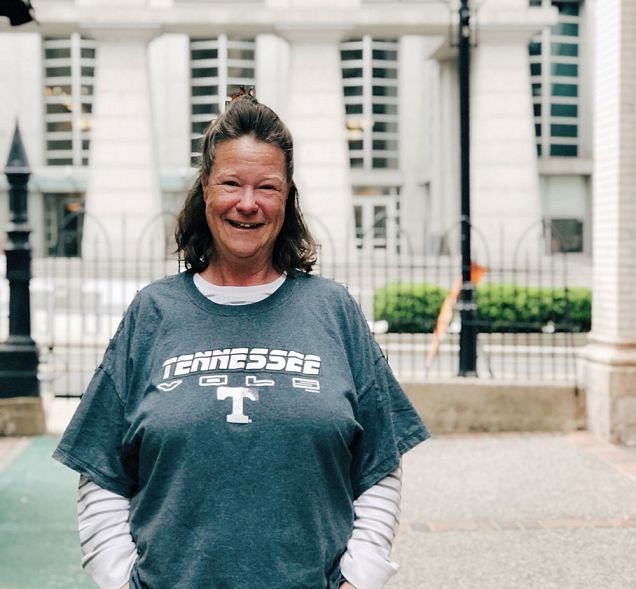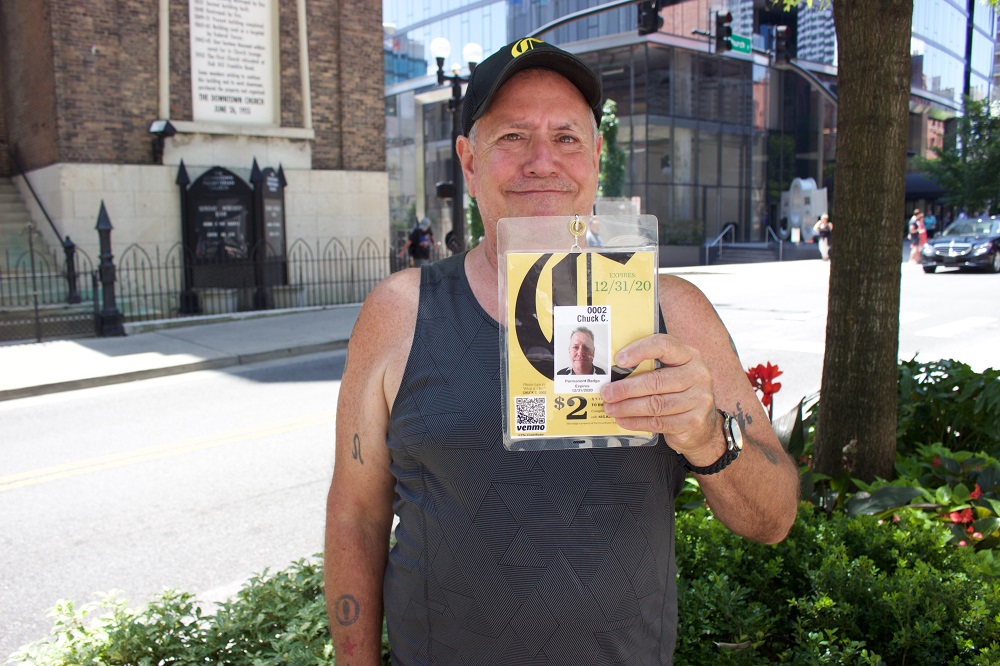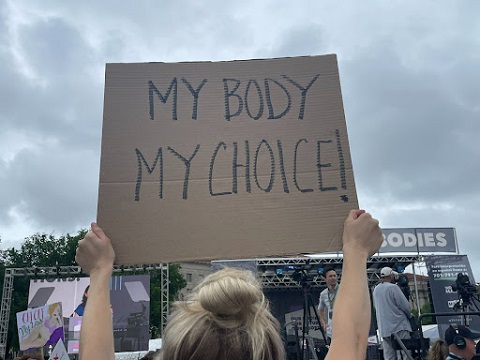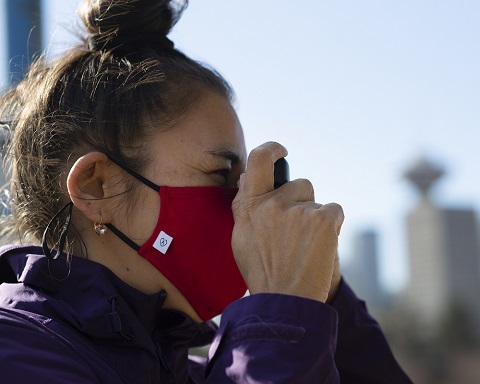Health care is a hot topic in the United States and the debate about health care is likely to be a key issue in the run up to the presidential election in 2020, and differing opinion on how it should be reformed has already been core to the ongoing Democratic Primary. The prohibitively high costs of accessing health care, combined with the high number of people without medical insurance, means that many Americans cannot access the care that they urgently need. Two vendors from The Contributor talked about their experiences of the American health care system.
Vicky B., vendor
Imagine being without health insurance. Most people just freak out at the thought, but for many people experiencing homelessness it’s a reality. Imagine not being able to see a doctor when you need to or having to rely on emergency rooms when your illness is just too unbearable to handle anymore. Imagine having Type 2 diabetes, high blood pressure and heart disease but no medication available to you.
I had avoided doctors until I was hospitalised with diverticulitis and was introduced to a doctor I not only liked but trusted. Dr. Thomas came into my hospital room a few years ago. His bedside manner was soft and even though I was upset about having to be there he assured me it was life or death. I had panic attack after panic attack until I couldn’t bear it anymore, and I felt like I had to leave. The nurses each tried to get me to stay and I was polite and listened to each one, but it was overwhelming. I had to go. Dr. Thomas showed up at my door and he assured me he’d run another scan to see if the medication was working that evening. I agreed and I never forgot what he said walking down the hall: “Take a chill pill!” I laughed and stayed. That evening, as promised, another scan was taken. Within a few hours he came in and said I could go home the next day. Home? I had no home. How was I going to handle working and not being close enough to a bathroom? I had to choose a new spot and soon. I couldn’t wait until I got better, so I found a new spot.
Imagine knowing that something just isn’t right. You have numbness, tingling and weakness on your left side. It’s been going on for some time, but, on this particular day, you wake up and it’s not getting any better. You go to the ER only to find out you’ve had a stroke. If life was hard before being homeless, it just got a whole lot harder. You’re admitted for two days then discharged back to the streets with instructions to follow up with a doctor. You have no money and no idea what doctor you’ll see, so you just try going about your day hoping everything will be okay.

I tried to seek out those sliding scale places, but I still didn’t earn enough to be seen by a doctor. Luckily, I found Neighborhood Health, which offers low cost or free services at several clinics scattered all over Davidson County. The staff there is very helpful, but stressed as they have so many patients and only a small number of allotted appointments. This has become an alternative for non-emergency issues, but during emergencies you still have to seek out the local ER. I live in an area where, if an ambulance is called, they won’t take you to the hospital of your choice like, where you’re registered as an indigent patient. My local hospital has labelled homeless people as “drug shoppers” and don’t take their illnesses seriously or give proper medical attention. When I had my my first stroke the hospital didn’t even provide the tests to determine I had had a stroke.
Recently we’ve been hearing more and more about rural hospitals closing with nowhere for homeless people to go but to another county hospital, which puts that hospital at risk of closing too. Pretty soon the only hospitals that will be open are the private ones— the money-making ones. So, where is the care and compassion for those who can’t pay? Is medicine only about the dollar amounts and screw those who can’t pay?
County health departments can act as a type of healthcare as they offer low cost or free care, but every time you go in you must bring all of your documents— making it an all-day event. It’s easy for someone experiencing homelessness to lose important documents and medical records.
If you have Type 2 diabetes you have to check your blood sugar multiple times a day and take medicine regularly to keep it under control. Having no money means that you have no way to get test strips, meters, or medication. If you’re hungry and someone offers you something high in sugar you take it anyway, say thank you and woof it down. Hunger doesn’t consider diabetes or other health concerns. Ever go to a soup kitchen and ask for the diabetic lunch? They don’t have that, but you’re hungry so you eat whatever they have. When you’re working with limited funds and gift cards, you try to get as much food as you can without asking yourself if this sandwich will put you into a diabetic coma or agitate other health concerns.
Finding shelter, food and other necessities of life seem to take priority over a person’s health when they are homeless or in a low income bracket. Kids need food and you need bus fare to get to a job that doesn’t pay enough for a home. There isn’t anything left over for healthcare.
“Imagine being without health insurance. Most people just freak out at the thought, but for many people experiencing homelessness it’s a reality. Imagine not being able to see a doctor when you need to or having to rely on emergency rooms when your illness is just too unbearable to handle anymore. Imagine having Type 2 diabetes, high blood pressure and heart disease but no medication available to you.”
Chuck C., vendor
Healthcare is a topic that is on the minds of many Americans. The subject of healthcare affects the housed, the unhoused, the working poor and the middle class.
I have been on both sides of the healthcare issue, both as a homeless uninsured individual 13 years ago and as a Certified Medical Assistant (NCMA-NCCT) today. I can say that the healthcare issue is not an easy topic to tackle. Anytime you involve government in a particular issue, the stage is set for debate, for sure. As an advocate for basic human rights to be guaranteed for all, I feel healthcare is of the most basic of all human needs. I spent years going back and forth from the Metro General Hospital to the Downtown Clinic and it’s we who have been there and done it who know how frustrating this merry-go-round can be.

In 2007, I obtained housing and worked at my chosen profession until I was able to draw a company pension. In 2014, I visited several healthcare facilities where I had friends as patients and residents. Some of the things I saw horrified me. In one long-term care facility I witnessed one woman who had fallen out of her bed onto the floor being ignored by passing staff.
When I enrolled in medical college after 30 years of being out of the educational system, I began to see how complex the healthcare dilemma actually was. Working for two and a half years to earn my Associates Degree in Clinical Medical Assisting NCMA/NCCT has given me some firsthand knowledge as to how things in healthcare actually work.
I was blessed to be able to do my 180 hours of clinical internship by Urban Housing Solutions on Murfreesboro Pike. I was able to assist in treating many of my neighbours and friends who are so desperately in need of individual quality healthcare. The staff at The Clinic of Mercury Courts do a wonderful job of treating the literally hundreds who walk through their doors. That is why health matters to me.




















